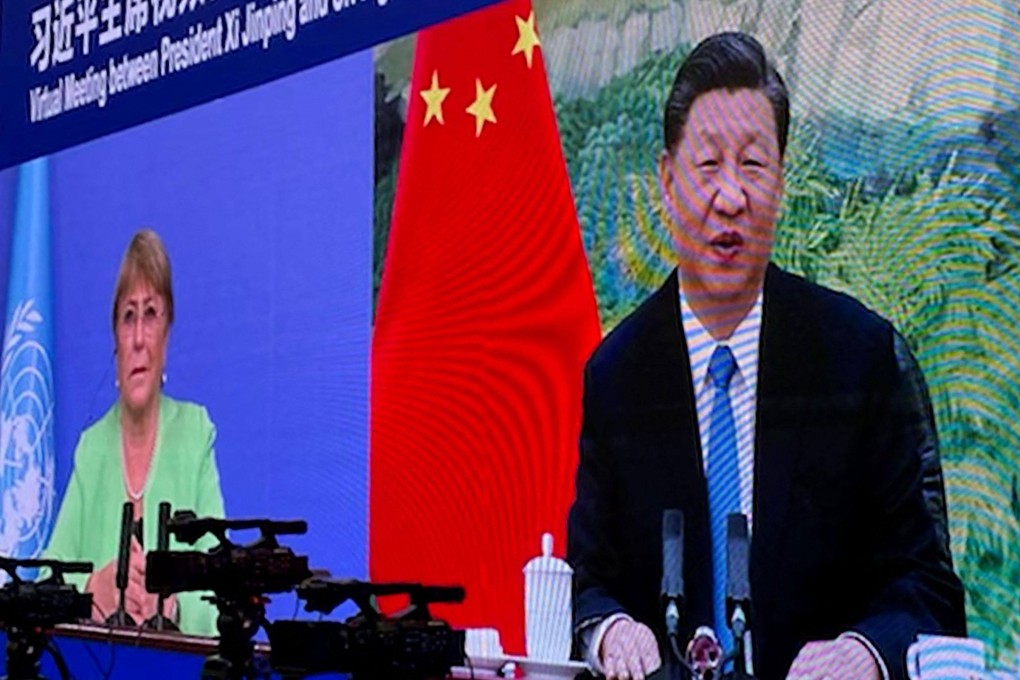Xi Jinping tells UN human rights chief Michelle Bachelet China doesn’t need ‘patronising’ lectures about its record
- In a video call, the Chinese leader says human rights should not be used as a ‘pretext to interference’ in countries’ internal affairs
- Bachelet will visit Xinjiang, where China is accused of wholesale abuses against Uygurs, but it is not clear if the pair discussed those allegations

Xi defended China’s human rights record during Wednesday’s conversation with Michelle Bachelet and told her China would not accept any “patronising” lectures, according to state news agency Xinhua.
“When it comes to human rights issues, there is no such thing as a flawless utopia; countries do not need patronising lectures; still less should human rights issues be politicised and used as a tool to apply double standards, or as a pretext to interfere in the internal affairs of other countries,” Xi said.
Xi also warned that “any system or model blindly copied from another country regardless of the situation on the ground will not only look out of place, but also bring disastrous consequences”.
The report did not mention if the two touched on alleged human rights violations in Xinjiang in their conversation.
Hours after Chinese media published remarks claiming that she “expressed admiration” for China’s efforts to “protect human rights”, her office issued a statement to “in response to widely reported remarks attributed to High Commissioner Bachelet”. Her remarks contained no such praise.
According to her office, Bachelet told Xi that she wanted to visit China to “to engage with the government of China directly, on human rights issues, domestic, regional and global”.
